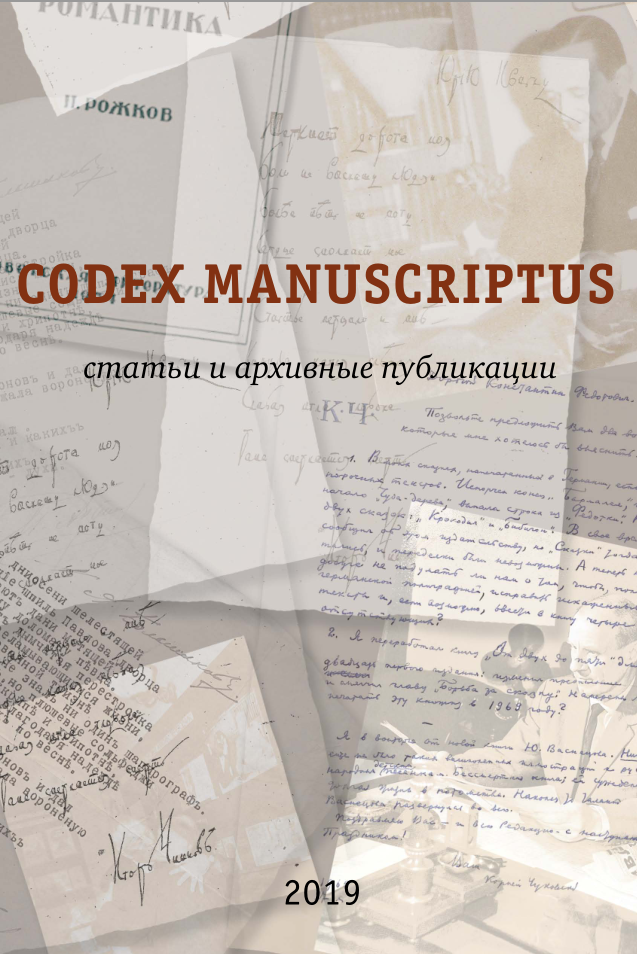Abstract:
This article analyses the history of stage-by-stage development of Russian professional organizations of drama writers in the 19th and 20th centuries. The focus is on the dynamic relationship of their creative pursuit, the finance and law conditions of their existence, and the ideological vector inside these organizations since the 1917-pre-revolutionary period until the establishment of the Vserosskomdram. The demand for protecting their copyright rights urged the drama writers to build a professional community, with the Moscow Society of Drama Writers and Composers and the Union of Drama in St. Petersburg as its two acclaimed centers. In the post-revolutionary period, both organizations have become grounds for implementing the Soviet copyright law, discussing the creative goals and targets for the Soviet drama writers, and fighting for the ideological superiority. The article deals with the conflict between “two capitals,” which reflects the spirit of literary institutions in the period of NEP. The research presented is based on the archive materials from the Department of Manuscripts of A.M. Gorky Institute of World Literature of the Russian Academy of Sciences, The Russian State Archive of Literature and Arts, etc.






